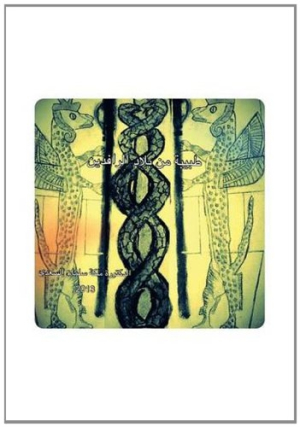A Doctor from Mesopotamia
Iraqi culture and people are reflected in this enlightening yet tragic memoir of a female physician forced to flee after the US invasion.
A Doctor from Mesopotamia, written in Arabic, is an attempt to capture an image of Iraq as seen through the eyes of Malka Al Saadi, a female Iraqi physician. With obvious love for her country, the author delves into, among other subjects, ancient and modern Iraqi history, politics, religion, economy, and culture, though she does not claim to be a professional in any of these areas. When she focuses on herself and her family experiences and personal narratives, she provides a clear and interesting picture of Iraqi society and brings it to life.
If this book is sometimes labored and too ambitious, at other times it is warm, personal, and inviting to read. The lives of the Iraqi people, in all their religious and ethnic diversity, struggling toward leading normal lives, appear in the background of the mysteries of the internal and external politics of Iraq.
Malka’s family lived in downtown Baghdad, where she was born in 1941. She was the first child born to a merchant father and a stay-at-home mom. The young Malka had a passion for education and learning. Her father lost his business when she was ten years old, but she, her two sisters, and her two brothers did not lose their passion for knowledge and education thanks to their parents’ encouragement and support.
Mixed in among her educational journey, the author also details her personal journey through the lens of Iraq’s history and politics. The personal story is intriguing, telling how she moved up and excelled from one grade to another in school, and along the way recounting the story of Iraq’s educational system. Her acceptance into an Iraqi medical school and her employment after graduation sound as if they were stories from The Arabian Nights.
After earning a medical degree and practicing in Iraqi hospitals, the author and her husband, now with children, were sent to pursue advanced medical studies in England, where they were impressed by the medical system. They returned to Iraq and faced disillusionment with a system that forced them to serve in places far from major cities. Her work experiences sketch interesting images of Iraqi culture and bureaucracy.
The author’s personal accounts of what happened in Iraq after the United States toppled Saddam Hussein are tragic and touching. She and her family had to run for their lives and leave Iraq, looking for safety and employment in Jordan, Syria, and Malaysia.
In many instances throughout this personal, gripping narrative, the author goes to great lengths to provide lists of names of graduating classmates, places she lived in and visited, relatives she grew up with, and other details that make the reading somewhat bumpy and cumbersome.
While these personal stories leave no doubt that the events that take place in A Doctor From Mesopotamia are true, the excessive focus on history and politics can take away from the charm and warmth of the dear, near, and personal feeling of the book. It is these personal stories and experiences, which are unlikely to be found in any academic books dealing with Iraq, that make the book so uniquely enlightening.
Reviewed by
Adnan Salhi
Disclosure: This article is not an endorsement, but a review. The publisher of this book provided free copies of the book and paid a small fee to have their book reviewed by a professional reviewer. Foreword Reviews and Clarion Reviews make no guarantee that the publisher will receive a positive review. Foreword Magazine, Inc. is disclosing this in accordance with the Federal Trade Commission’s 16 CFR, Part 255.

